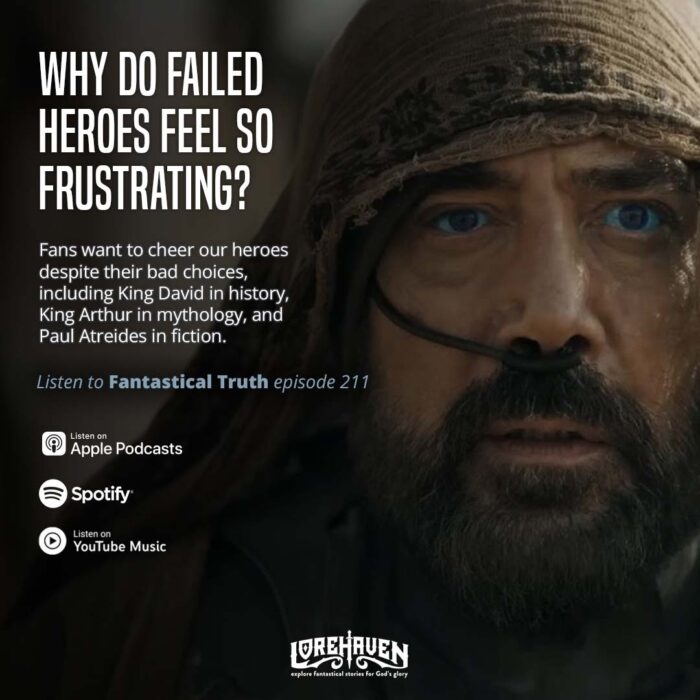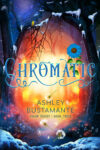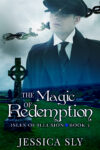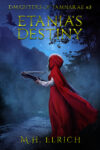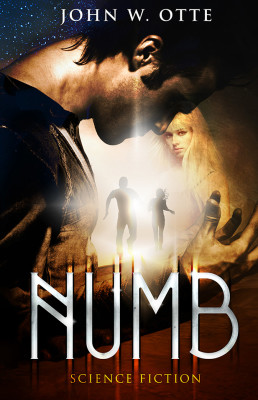 Crusader perched like a gargoyle on a second floor ledge across from the safe house’s entrance. He ignored the rain pouring down his face even though it blurred his vision. The weather didn’t matter. Neither did his posture. God created him to execute the Ministrix’s justice. Soon he would fulfill his ordained purpose.
Crusader perched like a gargoyle on a second floor ledge across from the safe house’s entrance. He ignored the rain pouring down his face even though it blurred his vision. The weather didn’t matter. Neither did his posture. God created him to execute the Ministrix’s justice. Soon he would fulfill his ordained purpose.
The building across the street from him consumed his attention. It was unremarkable in its construction, a four-story box made of standard terracrete. Its dull beige exterior matched that of its neighbors, making the entire block look like a row of rotten teeth. Low bushes lined the front of the building. To the untrained eye, the building would appear to be a simple apartment building or maybe an office complex. But Crusader knew better. He could see the subtle way the front entrance had been reinforced, or the forcefield emitters tucked into the windows in case of siege. No, this was no ordinary building. It was a Praesidium safe house and his prey was inside.
He fought the urge to shift. His legs could have cramped, but he couldn’t test them now. Numbness wrapped him in a hazy cocoon. He breathed a silent prayer, thanking the Almighty for this divine gift. Why God had made Crusader numb, he didn’t know, but he had been this way for as long as he could remember. He didn’t know pain. He wasn’t hindered by emotions. Normally, this helped on his missions. But if he rested in one position for too long, he could stiffen up without realizing it. He needed to shift his weight, keep the blood flowing. But that wasn’t an option, not now. Better to remain focused on the task.
Crusader blew water from the tip of his nose. A guard wandered by a window, not even bothering to look outside. This was the third time Crusader had seen that one. He had counted twelve guards so far. Difficult but not impossible.
Conversation drifted up from the street. A young couple strode toward the safe house, apparently unconcerned about the rain. The man nuzzled the woman’s neck. She giggled, wrapping her arms around him. Her red hair was bobbed in keeping with local fashions, but her strong stride marked her as a non-native, most likely from the Praesidium’s Orion Stations.
The man’s goatee, tightly trimmed, framed a wide grin that split his hawkish features. His eyes, bright and green, flashed as he laughed. If Crusader didn’t know better, he’d peg him as a native. But that was why Balaam was one of the Ministrex’s best agents. He could blend into any culture. Even though Balaam knew Crusader was in the area, he didn’t show any sign. His focus remained on the girl. They walked up the steps and through the front door.
Crusader leaned back. He hated working with a partner but hadn’t been given a choice. Sub-Deacon Siseal, his superior, had insisted. And with a mission this important, Crusader couldn’t blame him. Killing a Ministrix Deacon was unheard of and yet they had no choice.
Deacon Palti had been in charge of Ministrix Intelligence, second only to the Revered Hand himself. To rise through the ranks of the One True Church, to be examined at every ascension, and to end like this. Crusader closed down that train of thought. Distracting. Didn’t need that.
The gnawing void within him grew sharper. Didn’t need that either, but he couldn’t avoid it. That chasm went everywhere with him, devouring him from inside his mind. If he focused on it, it raged. If he ignored it, it growled beneath his thoughts. Guilt over what he had done. Guilt that could only be stilled through obedience to the Ministrix. So the Revered Hand taught. So Sub-Deacon Siseal assured him. So Crusader believed. Killing Palti would be another step toward removing the void from his life.
An hour dripped by. His “parrot,” a device perched on his shoulder, chirped. He barely heard it over the patter of raindrops, but it was enough. Withoug a sound, Crusader dropped from his perch and drew his blaster. He whispered to the parrot to start recording. Sub-Deacon Siseal would want proof that the job was done correctly.
There. A green flash from a second story window. Crusader slunk from the shadows to the main door. He fished a lock picker from his pocket and pressed it to the keypad. The machine whirred. While it worked, Crusader pressed explosives on either side of the doorframe. By the time he finished, the doors hissed open.
After counting to three, Crusader dove through the opening. A pair of Praesidium guards shouted in surprise. Crusader fired and burned holes through their chests. Then he rolled across the floor and popped to his feet. Two down and they wouldn’t be the last.
The safe house’s foyer was deceptively empty. It appeared little more than a two-meter-by-two-meter room with an arch opposite the door. The plaster coating the walls was dingy and cracked. Crusader suspected that the arch had numerous security sensors embedded in its metal, placed to detect unauthorized entries. He strode through anyway.
A hallway stretched to his left and right. The floor was stained and pitted, the walls likewise showing a great deal of wear. He glanced to either side. Looked like a dining room to his left, a living space to his right. In front of him was a closet. He pressed himself into it as half a dozen people thundered down the hall, their voices a riot of confusion. Crusader waited. let them gather around the bodies, close to the door. He then whispered a command to the parrot and turned his head away.
The world dissolved into a roar. He counted to three. Crusader emerged from his shelter. The door had been blown apart. Crusader surveyed the damage. Six more Praesidium agents, dead from shrapnel wounds. No survivors. Acceptable. he kicked a chunk of concrete out of his way. His target still waited within.
He cleared the kitchen first, then proceeded to the living area. No hostiles there either. The room looked run down and decrepit, like the rest of the safe house. An open door revealed a flight of stairs. He crept up the stairs. No one opposed him. If the guards had overcome their initial panic, they had likely clustered around Deacon Palti. Crusader peeked around the corner into a deserted corridor. If Balaam’s reconnaissance was right, the heretic Palti would be in a central room on that floor. He slunk out of the landing and down the hall, his arms relaxed but ready.
The cold metal of a blaster bored into the back of his neck.
“Hello, Crusader.”
He knew that voice. “Hello, Kolya.”
He turned, bringing the Praesidium spymaster into view. Krestyanov didn’t appear to be much of a threat. He had a thick waist, with thinning raven hair and beady blue eyes. But Crusader was still impressed. A lesser man would have panicked at the sound of Crusader’s entrance. Kolya Krestyanov, however, looked like he had simply rolled out of bed for a drink. The smaller man’s raven hair was a bit unkempt and his beady blue eyes flashed. But he stood tall, his breathing even.
“So what brings you to Lanadon? This charming world has no Ministrix post.”
“You know. Palti. He’s ours.”
“I don’t think you’re in any position to claim ownership of him, my friend. You may have made a mess downstairs, but I was ready for you, yes? This game between us ends tonight.”
– – – – –
If you’d like to continue reading this scene, contact author John Otte and ask him to post an excerpt on his website, or purchase a copy of Numb, a finalist in the Christy Awards, Visionary Category. The book is available as an ebook or paperback at Marcher Lord Press, Amazon, Barnes and Noble, and other fine outlets.
 According to a recent New York Times article, “College Classes Use Arts to Brace for Climate Change,” university courses have begun to shape society’s thinking, using the novel, for the exploration of climate change—not its reality because that’s a given, according to this article, but, quoting Professor Stephanie LeMenager, “about adaptations and survival strategies . . . The time isnât to reflect on the end of the world, but on how to meet it. We want to apply our humanities skills pragmatically to this problem.â
According to a recent New York Times article, “College Classes Use Arts to Brace for Climate Change,” university courses have begun to shape society’s thinking, using the novel, for the exploration of climate change—not its reality because that’s a given, according to this article, but, quoting Professor Stephanie LeMenager, “about adaptations and survival strategies . . . The time isnât to reflect on the end of the world, but on how to meet it. We want to apply our humanities skills pragmatically to this problem.â



